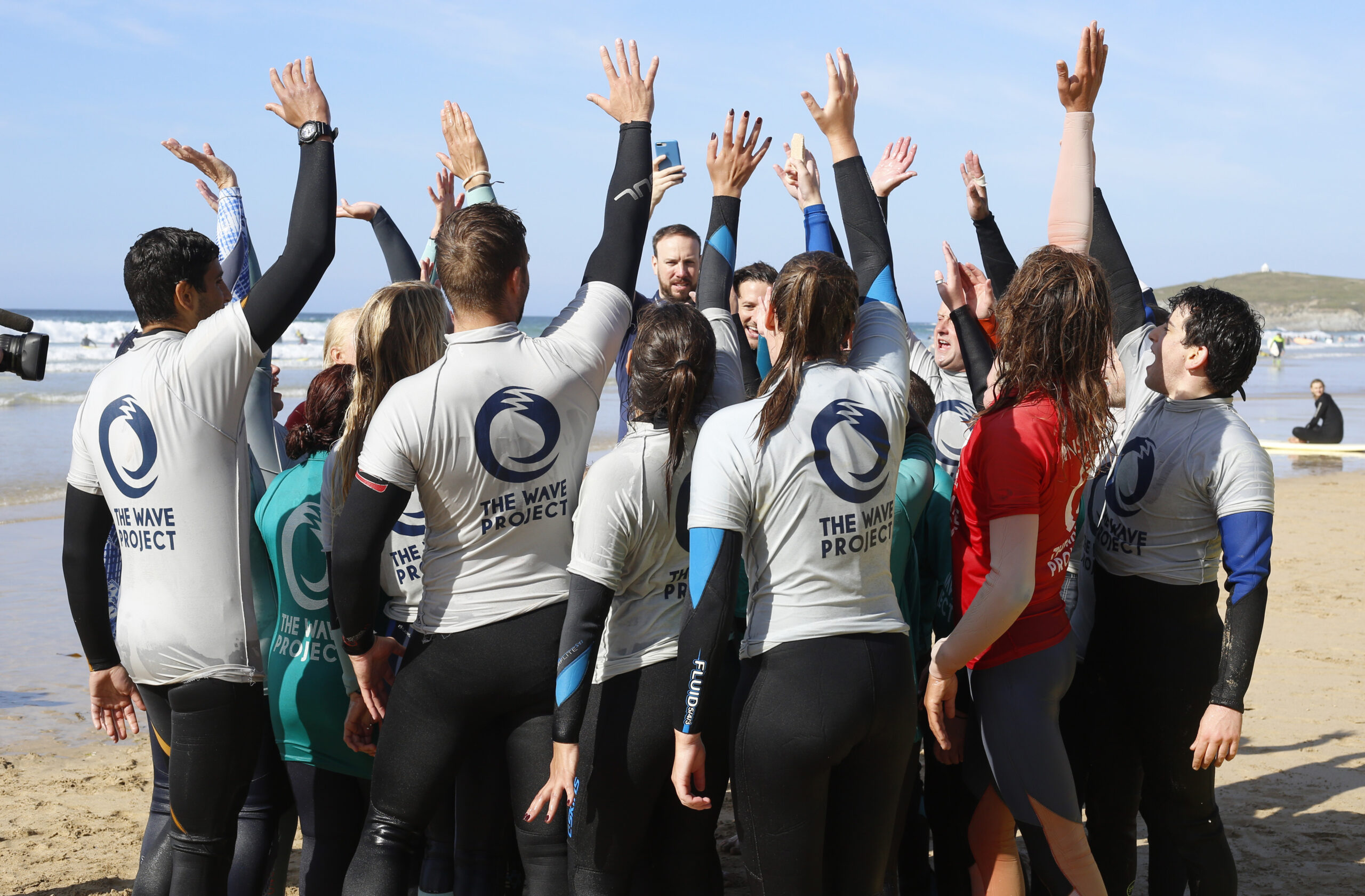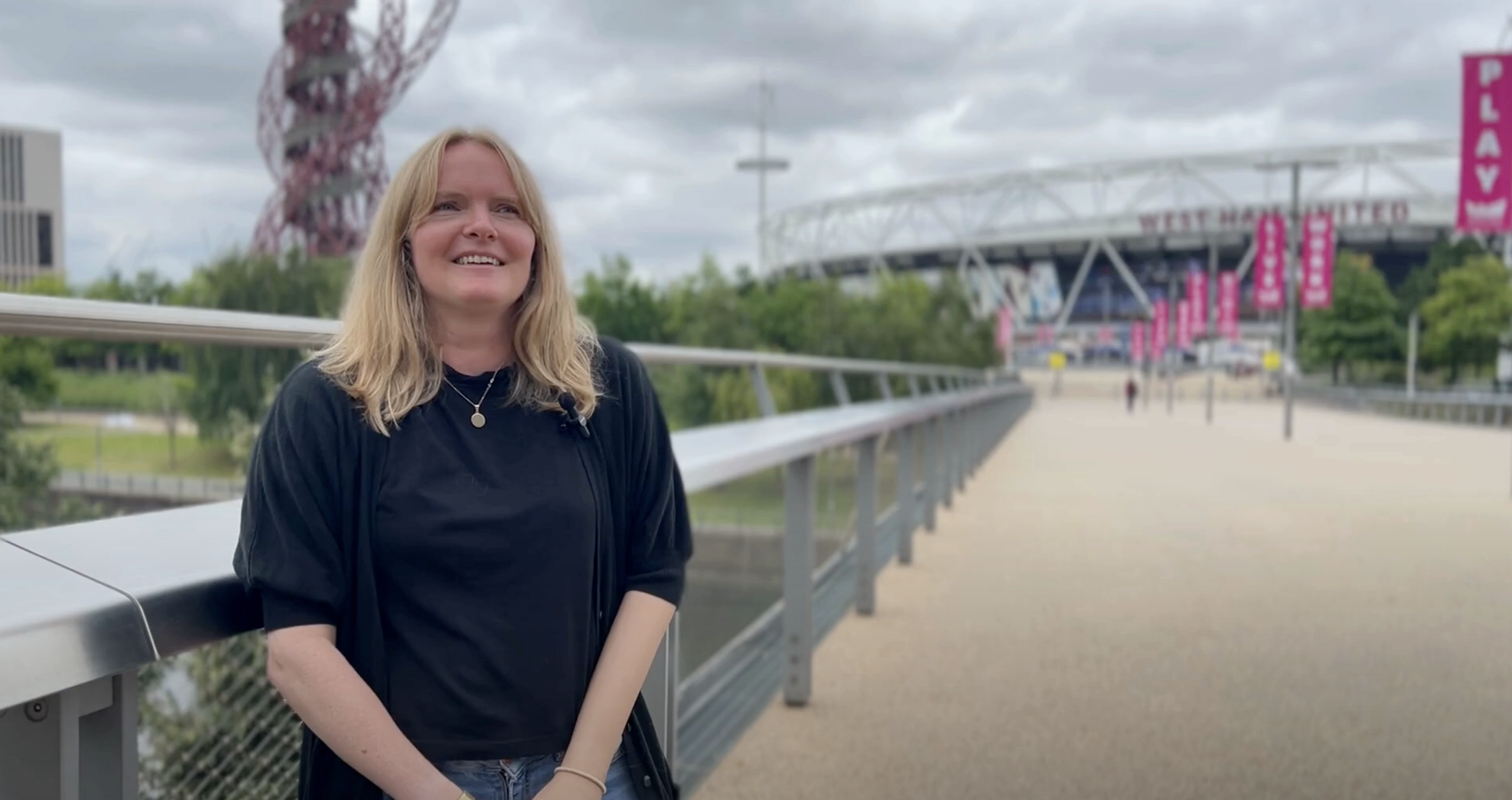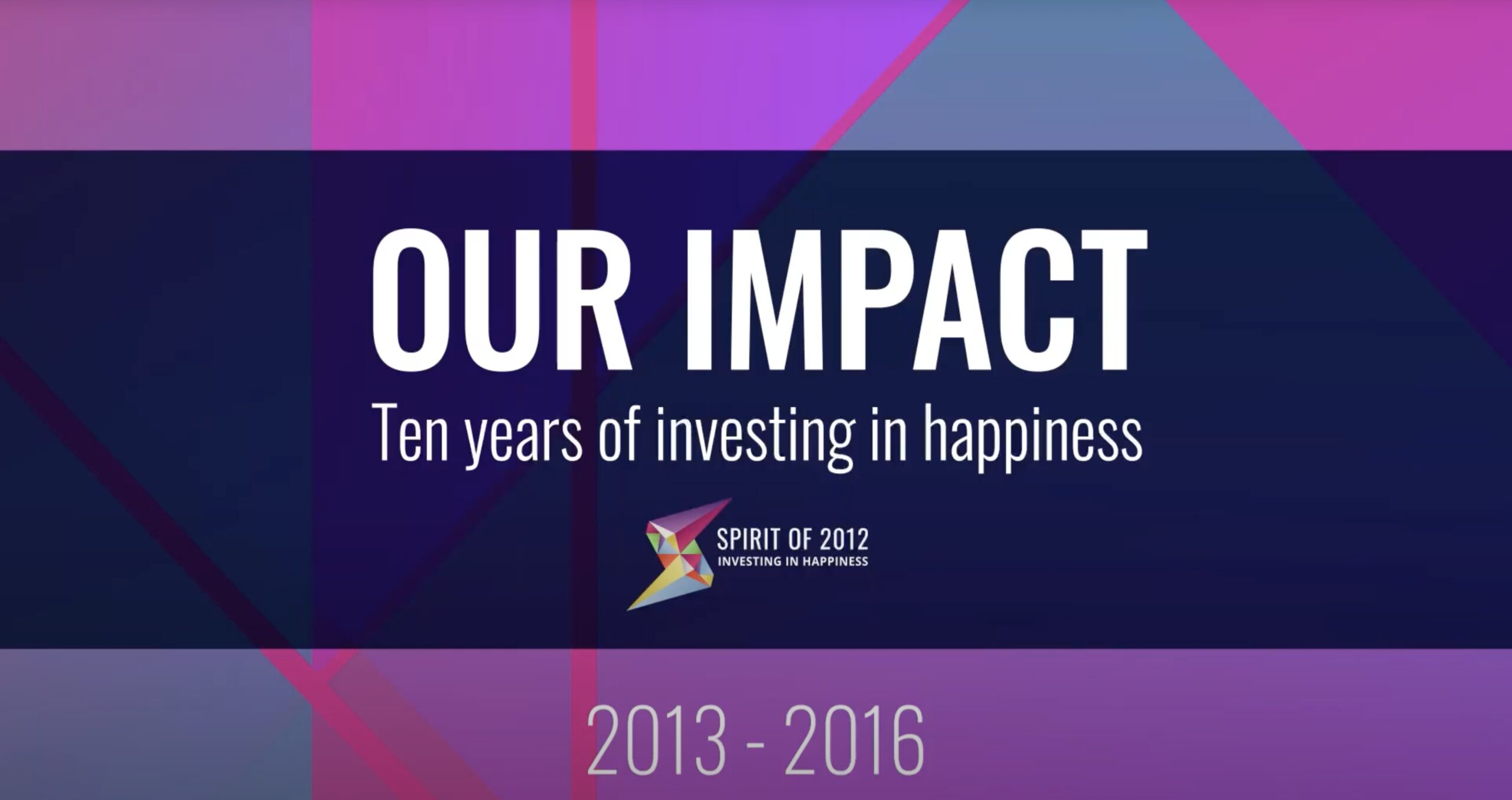One of our first acts was to create a Theory of Change, co-created with over 35 stakeholders, that described the long-term impact we wanted to have with our funding and the pathways to achieving it. All Spirit’s funding and research has been grounded in testing this Theory of Change and measuring the impact of our funded projects on people’s wellbeing, feelings of connectedness and attitudes to disability and impairment. More can be found on our Theory of Change and approach to impact measurement here.

Our Story
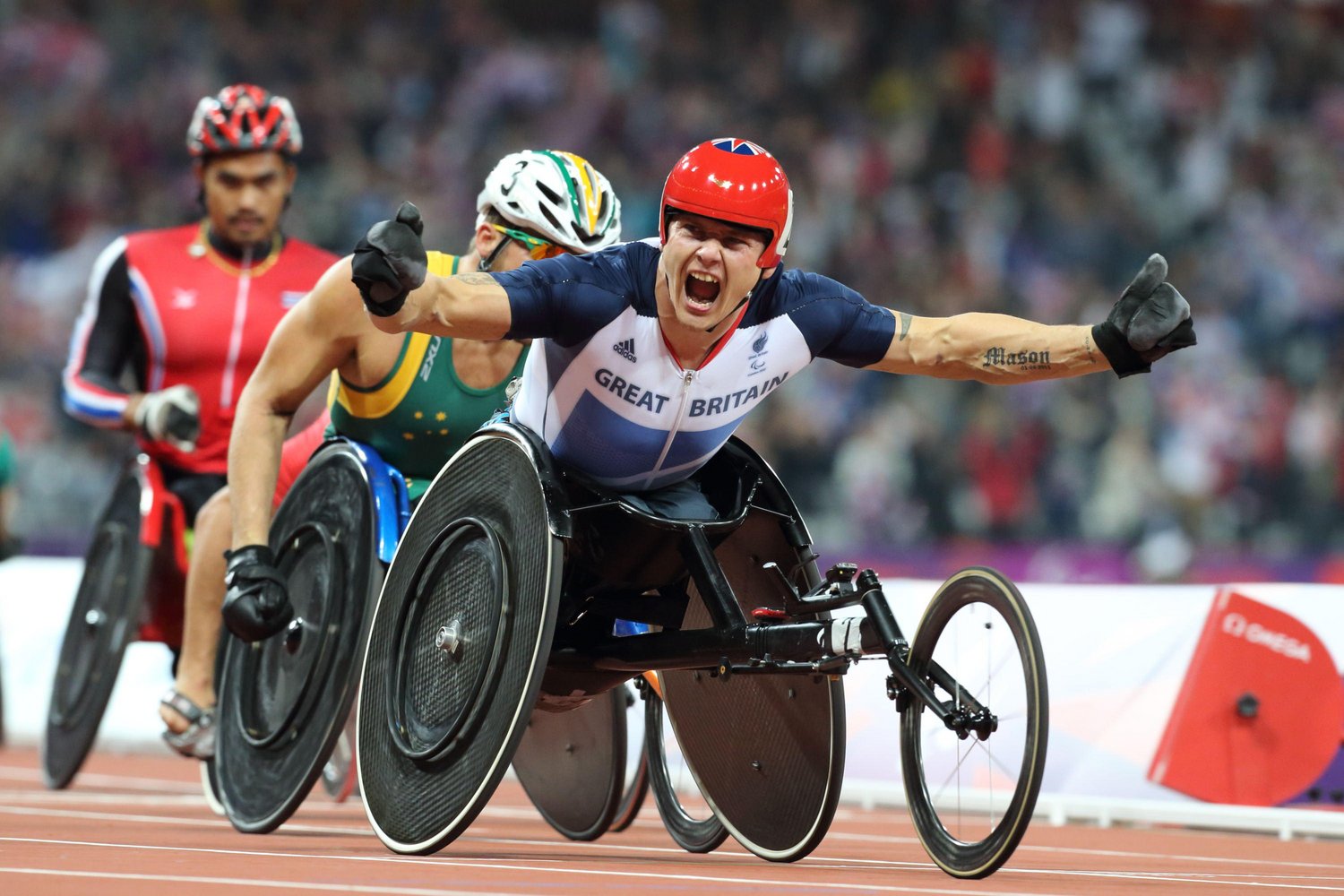

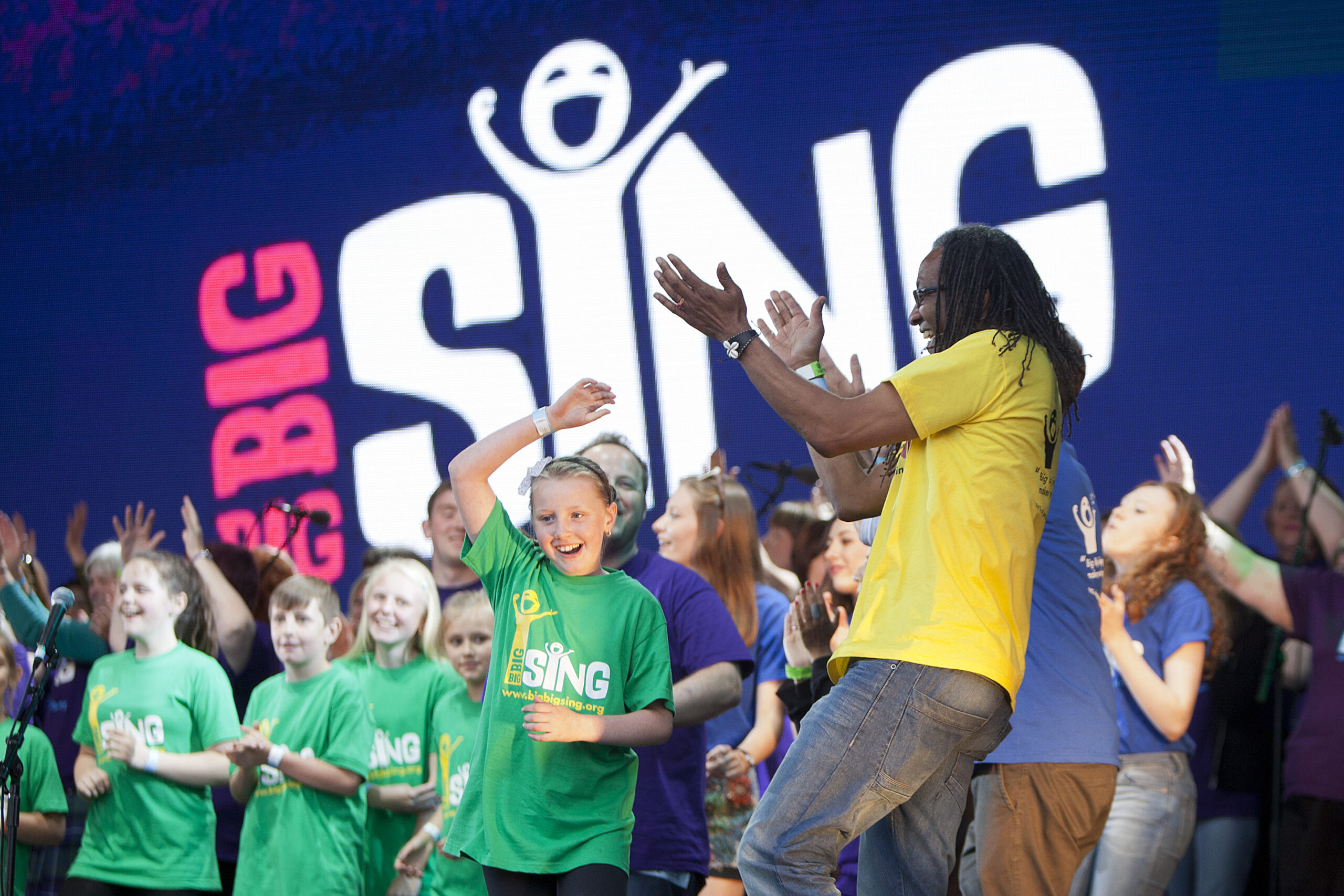
Read our final report ‘Crafting Events That Matter’ for the full story of Spirit of 2012 and how you can take it forward
The summer of 2012 saw the eyes of the world on London hosting the Summer Olympic and Paralympic Games. Beyond London, the Queen’s Platinum Jubilee celebrations, the Torch relay and the cultural Olympiad brought communities together in celebration up and down the country.
The National Lottery Community Fund (BIG, as they were then) saw the opportunity to sustain the social and community legacy of the London 2012 Games, the way that the events of that year brought people together and how they made them feel about themselves, the people around them and their communities. Our focus was to work with future events, of national and local significance, to continue that spark and connection we saw through London 2012 both through the grant funding of multi-year participatory projects and research into what works in leaving a lasting legacy from events.
In 2013, the Fund endowed Spirit with an initial gift of £40 million, which subsequently increased through additional grants and novations of grants they had made under the “Keeping the Spirit Alive” programme to £47 million. The Fund asked us to pay particular attention to continuing the commitment to young people made in the Singapore Promise to Inspire a Generation and promote the legacy of the London 2012 Paralympic Games by funding work with and for disabled people.
Spirit of 2012 was established as a spend out Trust and we are required to have spent all of the original endowment by October 2028, however in January 2020 our Board set a firm commitment to spend out in 2026.
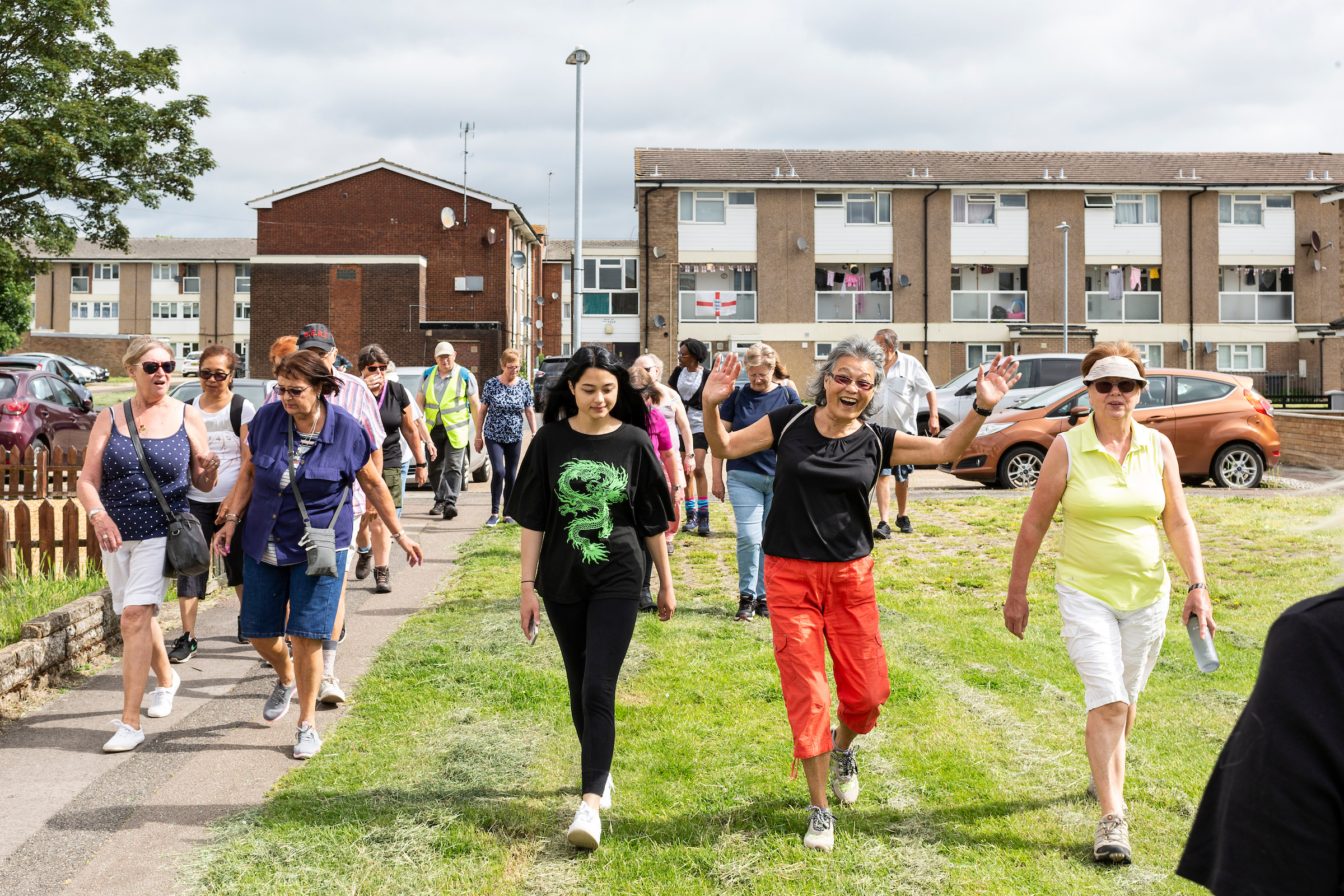
Led by founding CEO, Debbie Lye OBE, and overseen by a founding Board including (now) Patrons Baroness Sue Campbell and Baroness Tanni-Grey-Thompson, and Sir Nicolas Kenyon and Dugald Mackie, Spirit picked up the baton of continuing the social legacy of the London 2012 Games.
Funding events and commemorations
Spirit of 2012 has played a key role on the design and delivery of long-term social impact for events across the UK from Cities of Culture to Great Get Togethers and local festivals. We have funded legacy programmes around many of the major sporting and cultural events, national commemorations and local festivals across the UK, including both Glasgow 2014 and Birmingham 2022 Commonwealth Games. Hull 2017 and Coventry 2021 Cities of Culture, the men’s 2015 Rugby and 2019 Cricket World Cups, 2017 World Athletics Championships. In 2018 we funded programmes to commemorate the Centenary of Women’s Suffrage and in 2023 Eurovision being hosted by Liverpool on behalf of the people of Ukraine, the King’s Coronation and 75th and 25 anniversaries of Windrush and the Good Friday Agreement respectively. We also funded the national summer and winter Great Get Togethers in memory of the late MP Jo Cox. See our Funding Strategy for more.
In addition to funding around a specific event or commemoration we have funded programmes to test and learn how to optimise engagement in the participatory activities that are often used in legacy programme and how to use them to reach some of the people most likely to be left behind or excluded from events.
What we funded, and how we measured its impact, was designed around testing our Theory of Change (see above). More detail about what we funded can be found here.
Spirit of 2012 has also played a key role in convening major events stakeholders across the UK, and across sport, the arts and volunteering, to ensure that the events ecosystem is better understood and more connected.
Charitable Objects
Our Charitable Objects, set out in our Trust Deed, are:
“The objects are the promotion of the following charitable purposes for the benefit of the public throughout the United Kingdom of Great Britain and Northern Ireland:
1. the advancement of education of children and young people, including but not limited to sporting and cultural activities and by encouraging good citizenship;
2. increasing the effectiveness and efficiency of the voluntary sector by encouraging members of the public to engage in activities to help others on a voluntary basis;
3. promoting community development and encouraging engagement by people in their communities in ways which provide benefits of a charitable nature in those communities;
4. and promoting greater understanding, and meeting the needs of, people with disabilities and thereby encourage their social inclusion and to use training and other activities to build their confidence and inspire others in all cases for the public benefit. “
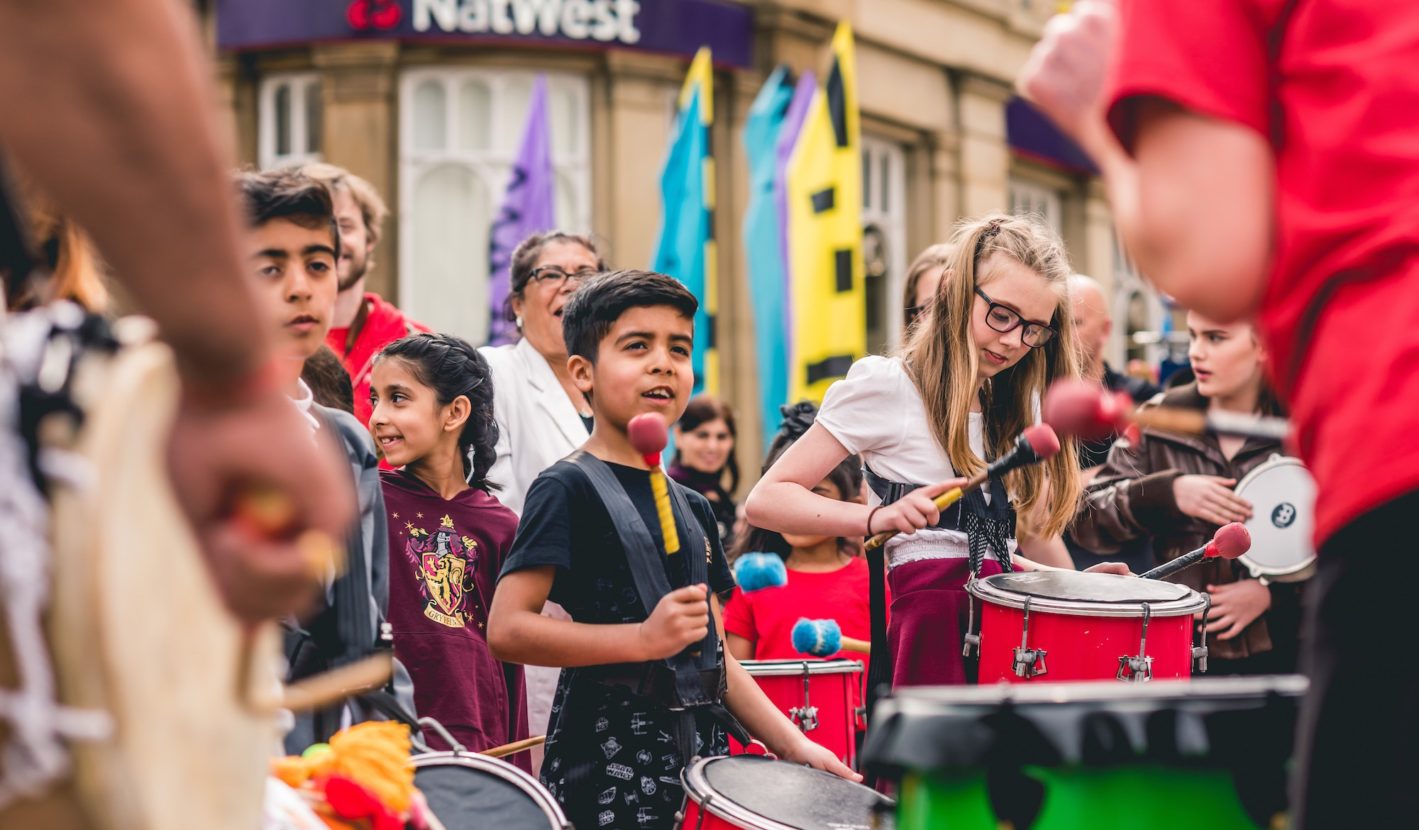
2020 New Strategy – Happier People, Happier Places
In January 2020 Spirit of 2012 published our revised Strategy Happier People, Happy Places that set the course for how and what we would fund, what evidence gaps we still wanted to research and importantly, confirmed that we would spend out and close by the end of 2026.
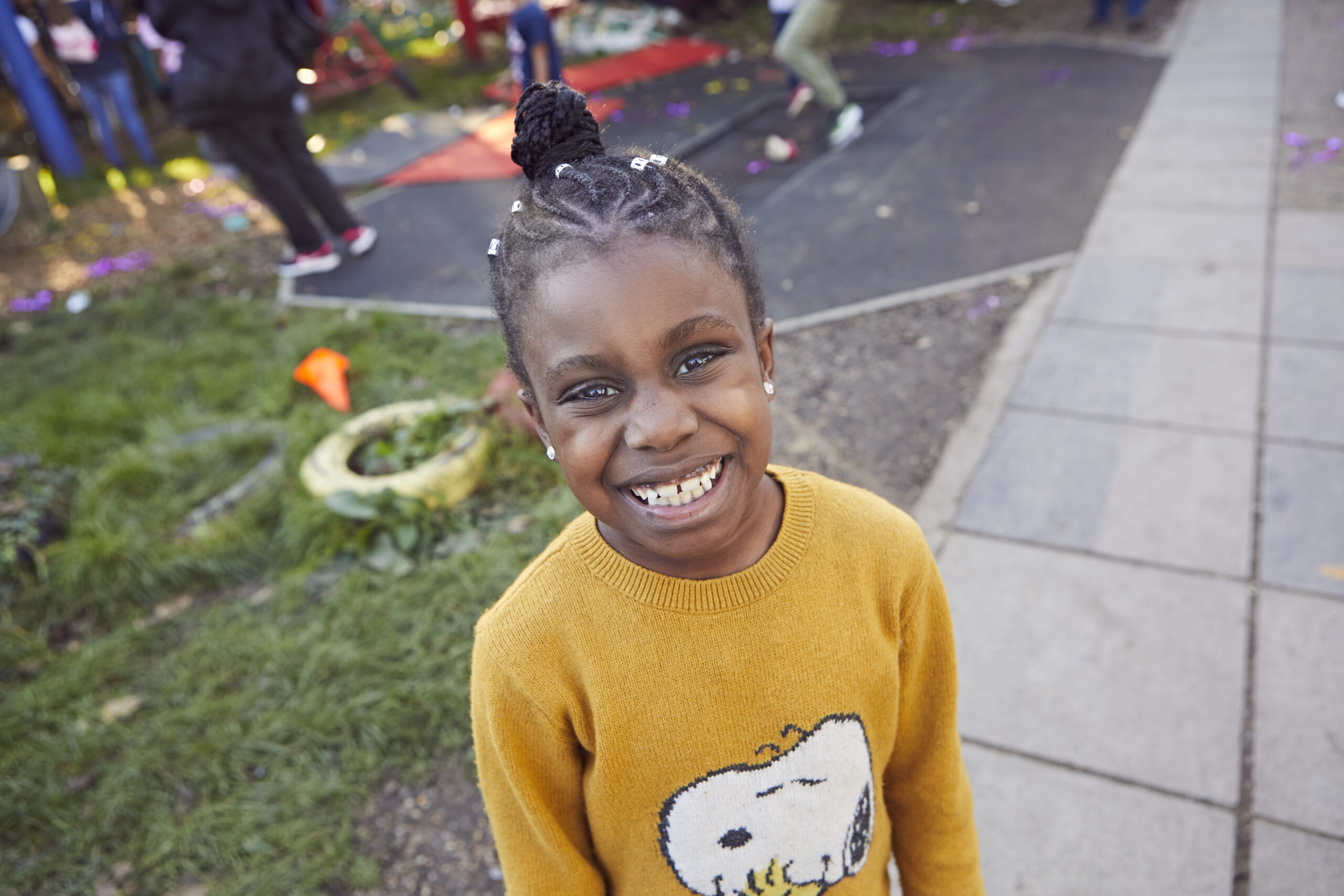
Project Detail
We committed to:
Build the evidence base: learn what works to improve wellbeing and social cohesion and how to capture and share it to have a sustained impact after Spirit funding ends.
Work in partnership: collaborate with partners that increase the value of Spirit knowledge bank, and contributing to, sharing and amplifying learning through their networks.
Break down barriers: build and share evidenced good practice for reducing the barriers for those that face greater barriers to participation and need extra support.
Champion genuine inclusion: actively promote the benefits and understanding of genuine inclusion that enables disabled and non-disabled people to participate, volunteer, and lead together as equals.
Influence: embed our learning and codify our approach so that it can reach and influence wider policy and practice through personal connections, public platforms, best practice guidance and toolkits, to leave a sustained impact.
Find out more about more by downloading Happier People, Happier Places, Spirit of 2012’s strategy for 2020-26, published in January 2020.
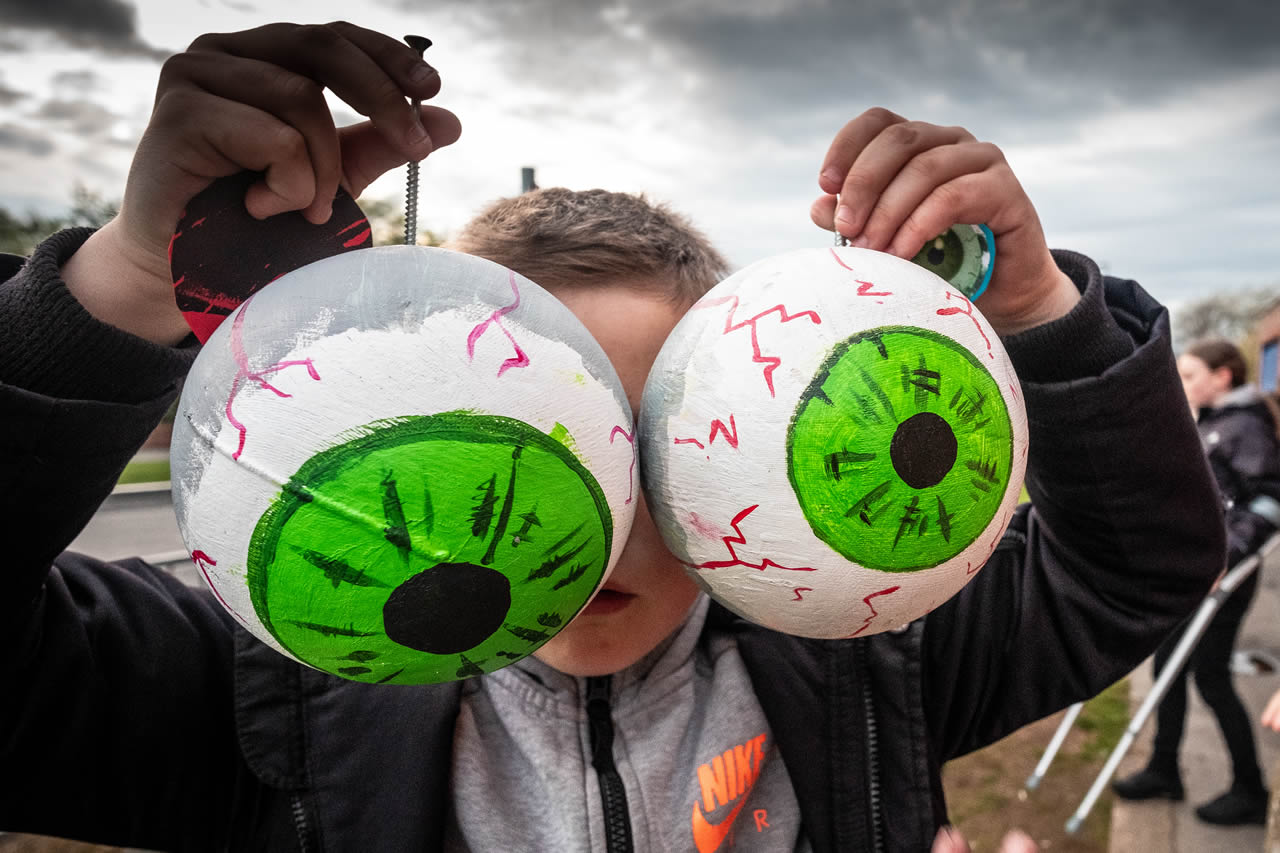
COVID-19
The long term disruption of COVID-19, particularly on participatory activities, was significant for Spirit of 2012 and the projects we funded. Many projects were unable to continue activities for many months and some switched to digital provision. A large number of projects extended their end dates to make up for some of the lost time. For projects working with disabled and older people, the affects were felt for even longer. As a funder committed to improving wellbeing we focussed during that period on supporting our projects and the people delivering them including making small grants available for our funded partners to support their team’s wellbeing and were as flexible as we could be in our expectations around delivery.
One of the most significant impacts for Spirit as a time-limited funder was the impact of projects extending on our staff numbers and retaining higher levels of grant management capacity for longer than we had planned for. Ultimately this has meant that Spirit is closing earlier than we set out to when we launched our 2020 Strategy.
The other significant impact COVID had on our plans was on project’s ability to collect impact data, especially around sensitive topics like wellbeing. This critically impacted the data and we were able to collect and the analysis we were able to do about the collective impact of Spirit’s work.
Closure
Spirit of 2012 has now closed as planned as of January 2026. During that time, it has:
- increased the importance of delivering a social legacy for events of all sizes, and shown how it can be delivered across multi sectors and locations.
- played a key role in ensuring that event commissioners and organisers effectively plan for, deliver, and measure social outcomes as a core part of their legacy plans using Theories of Change and standard measures.
- raised the status of long term investment in social legacy alongside economic and physical legacy.
- demonstrated how the (social) legacy of a mega event can be sustained and extended to national, regional and local events across the UK, and continue to have a tangible impact long after the event has finished, and
- demonstrated how legacy programmes can move beyond engaging those that we know will be inspired by a major event, targeting and engaging those that might face the greatest barriers to participation, but for whom the benefit is the greatest.
